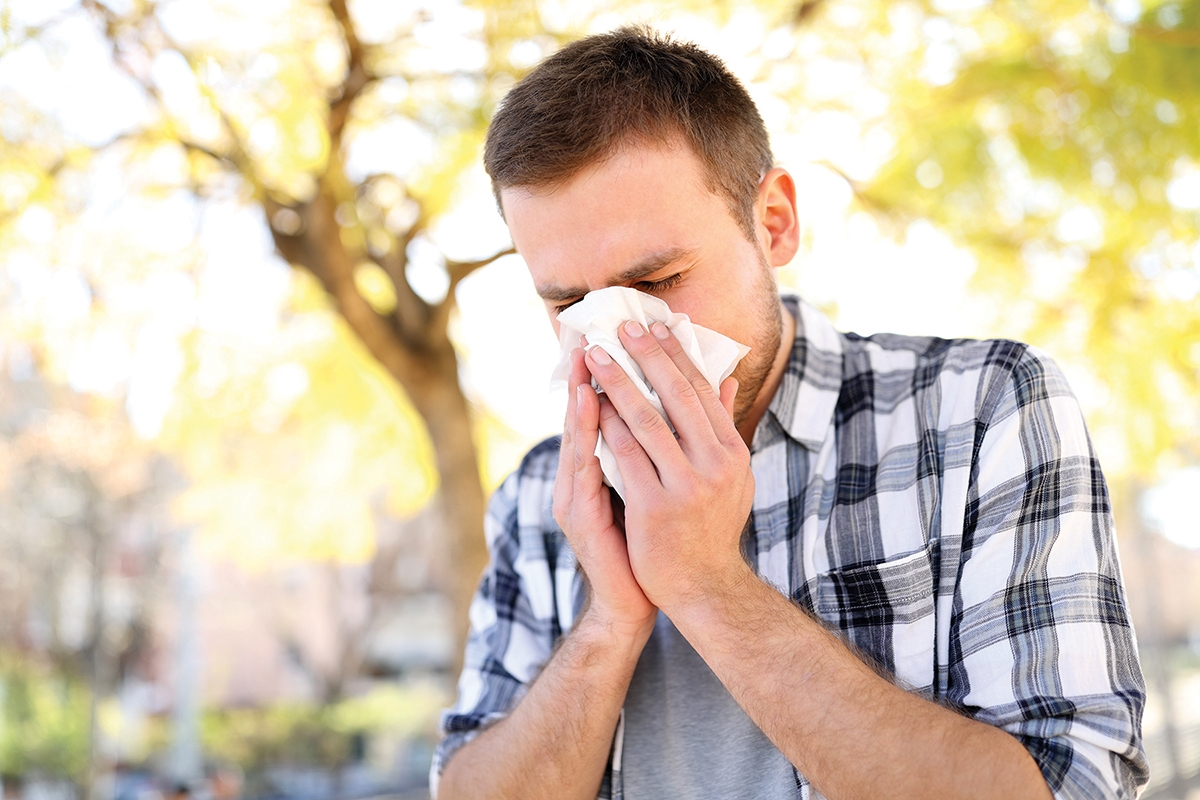How To Survive Pollen Season

Spring in North Carolina means warm days, longer evenings, beautiful blooms ... and pollen. Aside from torturing allergy sufferers, spring pollen season can wreak havoc both in and outside your home. Here are eight quick tips for surviving the worst of it.
1. GET AHEAD OF THE FORECAST. Find a weather app that tracks and reports local pollen levels; on heavy days or when pollen “storms” are predicted, keep windows and doors closed.
2. CLEAN OUTSIDE. Pollen that settles in and around roofs, screens, and windows has a greater chance of eventually blowing its way inside. Likewise, pollen left to sit on driveways, walkways, patios, decks, porches, and outside stairs will come in on shoes. Sweeping, hosing down, or power washing these outside areas can help to minimize the work you will need to do inside. Removing shoes upon entry will help as well.
3. CLEAN QUICKLY AND OFTEN. Like many other soils, when left untreated, pollen will harden into a film that gets more difficult to remove over time. And, unlike many other soils, pollen stains both fabrics and surfaces.
4. CLEAN YOUR AIR. If spring allergies are a particular issue in your household, consider running a HEPA (high-efficiency particulate air) filter, which is designed specifically to remove such allergens as pollen, pet dander, and dust mites from the air.
5. DO NOT DISTURB. Especially if you have spring allergy sufferers living in your home, the focus needs to be on removing pollen grains with as little disturbance as possible, so avoid dusting or even vacuuming with anything but a HEPA-filtered machine, as these activities will drive pollen grains up into the air.
6. MICROFIBER IS YOUR FRIEND. To remove fresh pollen from hard surfaces, spray an everyday cleaning solution onto a high-quality microfiber cloth, which is built to trap and remove particles. Wipe slowly and carefully. Or borrow a page from the professional window cleaner’s playbook – spray, then use a squeegee to neatly and thoroughly remove all the offending yellow muck.
7. SHAKE, SHAKE, SHAKE. For pollen grains that have landed on fabrics, upholstery, and carpet, avoid rubbing or wiping. First, if possible, take the item outside and shake vigorously to get rid of loose grains. Next, try a lint roller or postal packing tape to lift away the stickier grains. If you can still see a stain, soak the item for several hours and rinse thoroughly using cold water alone; if you can’t submerge the item in cold water, spritz then blot gently with a white cloth until the blotting cloth comes away clean. If that doesn’t work, try an oxygen-based or specialized laundry-stain solution, following package instructions for use. If all else fails, take the item to a professional dry cleaner. Avoid heat drying (which will set the stain) until you are sure the stain is gone.
8. REMEMBER THOSE OUTSIDE LIVING SPACES. For non-fabric patio and other outside furniture, a good, strong-spraying hose, clean rags, and dishwashing liquid will usually work to remove loosely settled pollen. For pollen that has become set on these surfaces, a Magic Eraser or similar tool may also be needed.

